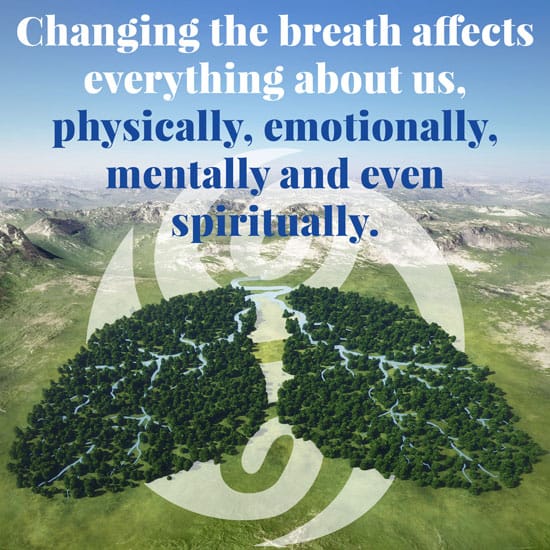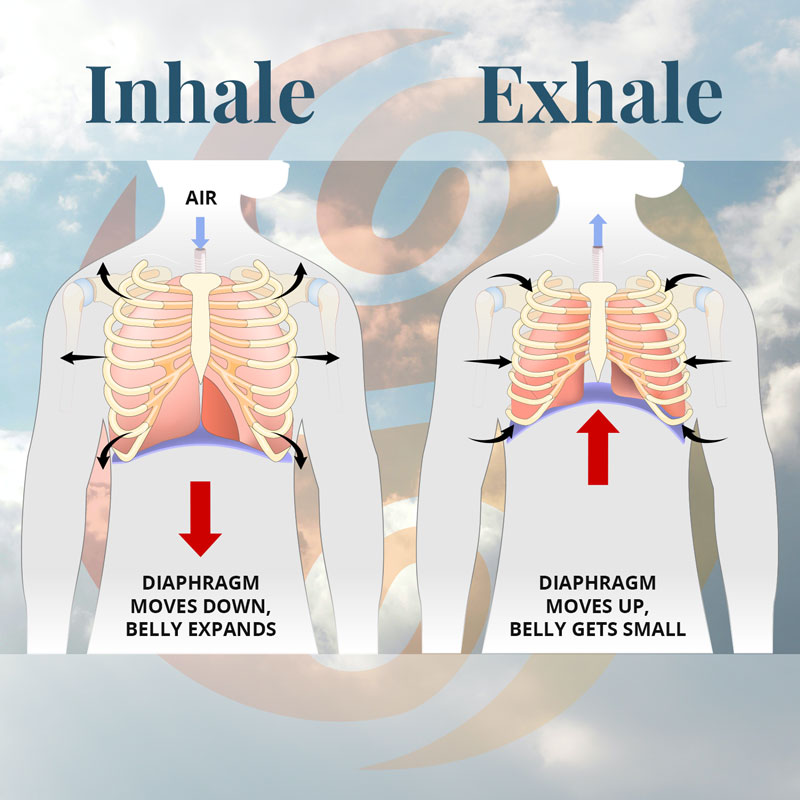Why Diaphragmatic Breathing Feeds the Body up to 6 times More Oxygen

It sounds a little ridiculous because the thought of pulling in that much more air into the lungs seems impossible. But it isn’t about how much air we pull in as it is about how much of the oxygen in that air that we absorb.
 The alveoli are the oxygen receptor sites in the lungs. The lungs are cone shaped and it is at the base of the lungs where 70% of the alveoli reside. When we breathe from the muscles of the upper chest, we aren’t bringing the breath down deep enough into the lungs to reach this concentration of receptors. In fact, there is just a sprinkling of alveoli at the top of the lungs, and those shallow, rapid chest breathers are absorbing enough oxygen to simply survive, not thrive. When we breathe with the diaphragm muscle, we pull the oxygen to the base of the lungs, allowing the air to reach the huge concentration of alveoli, therefore dramatically increasing the absorption of oxygen into the blood.
The alveoli are the oxygen receptor sites in the lungs. The lungs are cone shaped and it is at the base of the lungs where 70% of the alveoli reside. When we breathe from the muscles of the upper chest, we aren’t bringing the breath down deep enough into the lungs to reach this concentration of receptors. In fact, there is just a sprinkling of alveoli at the top of the lungs, and those shallow, rapid chest breathers are absorbing enough oxygen to simply survive, not thrive. When we breathe with the diaphragm muscle, we pull the oxygen to the base of the lungs, allowing the air to reach the huge concentration of alveoli, therefore dramatically increasing the absorption of oxygen into the blood.
It is in the book “Yoga and the Quest for the True Self” that author Stephen Cope states that “breathing diaphragmatically feeds the body up to 600% more oxygen than breathing through the muscles of the upper chest.” In fact, there is an entire section on the difference between the diaphragmatic breather and the chest breather, right down to the brain patterns. Changing the breath affects everything about us, physically, emotionally, mentally and even spiritually. In fact in the book “The Power of Now” by Eckhart Tolle, he says that only when we breathe with the diaphragm are we living in the moment, and that God lives in the moment.
I love what Eckhart shares about stress. He says that stress lives in the chest breather as that connects us to the future and the past, both of which aren’t real. The past is based on our perception of what happened and the future hasn’t happened. When we breathe through the muscles of the upper chest it links us to the brain pattern that keeps us locked in fear. He shares that if your house is on fire, you don’t stress, you act. You do what you have to do to survive. If you are worried about your house catching fire, now you are brining stress into your inner world but it isn’t a reality, simply a fear. Living in a state of worry affects the autonomic nervous system and shuts down the immune system. It is said by many that 90-95% of all illness results from stress, and stress is directly linked to the way in which we breathe.
There is a fantastic book called “The Science of Breath” by Swami Rama, Rudolph Ballentine M.D. and Alan Hymes, M.D., that explains the particular mechanics and the complexity and brilliance of the body as it relates to conscious breathing. For anyone wanting to understand this more fully, it is a great resource and will be sure to answer any questions you may have.
In the meantime, lie on your back, place your hands on your belly and when you inhale, feel the belly rise. When you exhale, let the belly fall in a relaxed way until the end range when you want to squeeze the belly small to get the last bit of waste out of your lungs and tissue. Notice how this changes how you feel.
Breathe & Believe
Also check out last weeks episode of Fascia Masters that discusses more in detail about why Diaphragmatic breathing is so important. Subscribe to our YouTube Channel at YouTube.com/FluidIsometrics to see our weekly series about Fascia, Block Therapy, and the benefits to your health.



